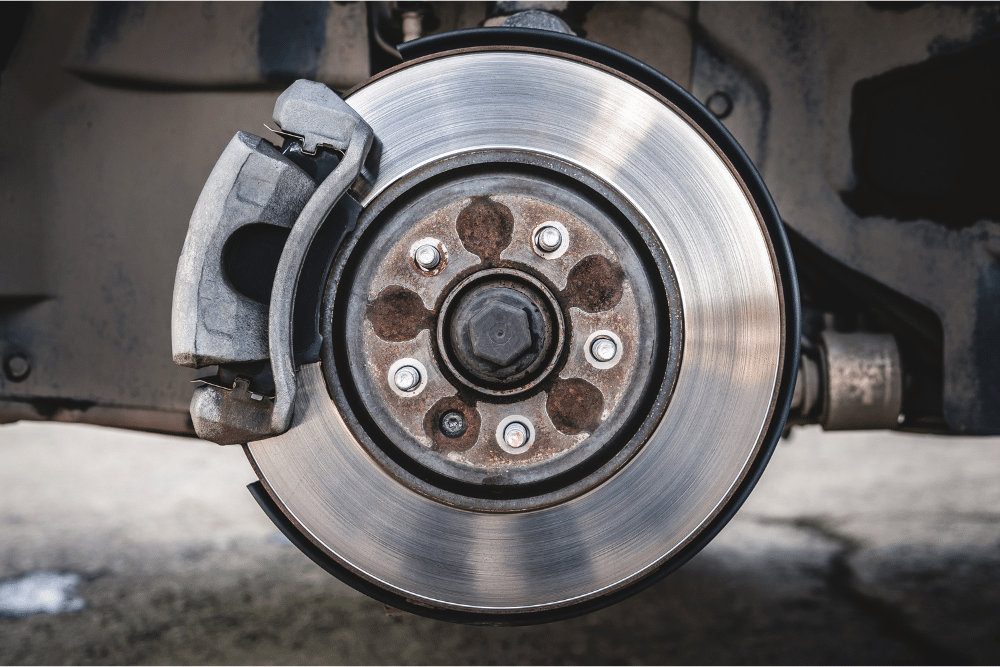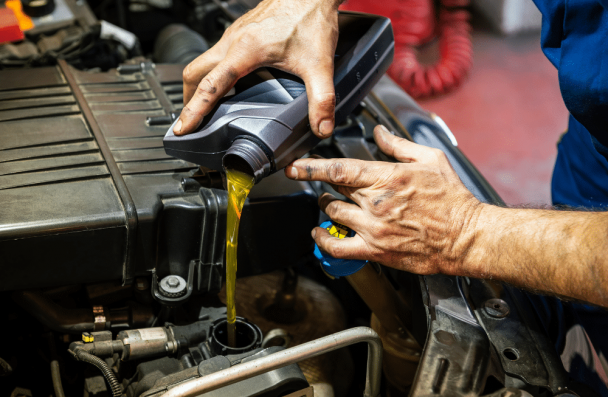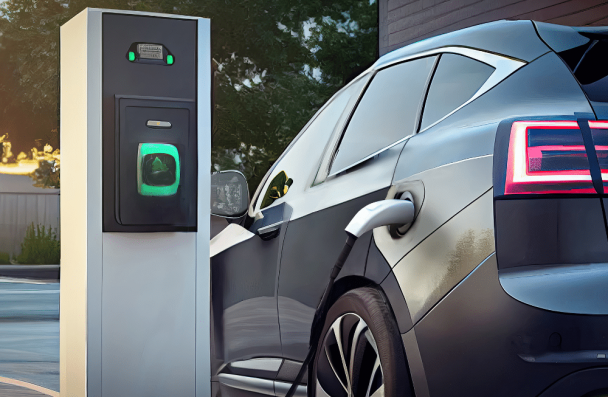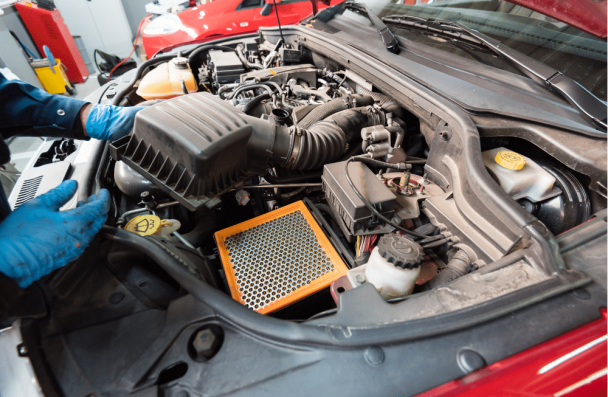It’s a sound every driver dreads: an unexpected squeal, screech, or grinding noise when you hit the brakes. Most people shrug it off at first, hoping it will go away. But when your brakes start talking, it is not just noise, it is a warning.
At NexGen Automotive in Sheboygan, WI, we’ve seen firsthand how brake noise can go from a minor annoyance to a serious safety concern. Your vehicle’s braking system is one of its most critical safety components, and unusual noises are often the first sign that something is not working properly.

Why is my car making noise when I brake, and how do I know if it’s serious? That’s one of the most common questions we hear from customers, and it’s an important one. Brake noise can point to several issues, some of which may require immediate attention.
In this blog, we’ll break down the most common causes of brake noise, what those sounds typically mean, and when you should bring your vehicle in for a professional brake inspection or repair.
Why Brake Noise Should Never Be Ignored
Brakes are designed to operate quietly. When they start making noise, there’s a reason—and it’s usually a sign that parts are wearing out, have become loose, or are no longer functioning as they should.
Ignoring these warning signs can lead to:
- Higher repair costs
- Decreased stopping power
- Risk of complete brake failure
Our ASE-certified technicians at NexGen Automotive know from experience that early intervention is key. It’s not just about preventing more expensive repairs—it’s about keeping you, your passengers, and others on the road safe.
The Most Common Brake Noises and What They Mean
| Brake Noise | Likely Cause | Recommended Action |
|---|---|---|
| Squeaking or Squealing | Worn brake pads or glazed rotors | Schedule brake pad replacement |
| Grinding Sounds | Metal-on-metal contact from worn pads | Immediate rotor and pad inspection |
| Clicking or Rattling | Loose caliper bolts or hardware | Brake system tightening and check |
| Hissing or Airy Sounds | Vacuum leak or faulty brake booster | Full brake system diagnostic |
Not all brake noises sound the same and they don’t all mean the same thing. Let’s break down the most common types of brake sounds and what might be causing them.
Squeaking or Squealing
If you hear a high-pitched squeal when applying your brakes, your brake pads may be worn down. Most modern brake pads are designed with a built-in wear indicator that creates a squealing noise to alert you it’s time for replacement.
Possible causes:
- Worn brake pads
- Dust or debris on rotors
- Glazed brake pads (caused by overheating)
Tip: Squealing is a signal. If caught early, a simple pad replacement can restore your brake performance and prevent rotor damage.
Grinding Sounds
A grinding noise is one of the most serious sounds your brakes can make. This usually means the brake pads have worn down completely, and now metal is grinding against metal.
Possible causes:
- Brake pads worn down to the backing plate
- Damaged rotors
- Loose or broken caliper hardware
Tip: Grinding often means rotor replacement is needed. Don’t wait—get your vehicle in for brake repair immediately.
Clicking or Rattling
A clicking or rattling noise when braking may be caused by loose components in the brake assembly.
Possible causes:
- Loose caliper bolts or clips
- Worn or broken hardware
- Debris trapped in the braking system
Tip: Brake hardware plays a key role in performance. It’s important to let a certified technician inspect the system to avoid unsafe driving conditions.
Hissing or Airy Sounds
This could indicate a problem with the brake booster or a potential vacuum leak. While not always related to the physical brake components, it still affects your ability to stop effectively.
Tip: Airy or vacuum-related brake noise requires a more detailed brake noise troubleshooting inspection.
The Real-World Risks of Waiting
Let’s say your brakes start squealing. You’re busy. You plan to “get it looked at next week.” Before you know it, you’re hearing grinding and now the rotors are damaged.
This scenario plays out more often than you’d think. What could’ve been a $200 brake pad replacement turns into a $600 repair that includes new rotors, pads, and possibly even calipers.
At NexGen Automotive, we help customers every day who wish they had brought their car in sooner. Our brake service process includes:
- A thorough visual and mechanical inspection
- Digital photos of worn components via DVI (Digital Vehicle Inspection)
- A clear explanation of what we found and what needs attention
Why Brake Maintenance Shouldn’t Be Delayed
Even if your car seems to stop without any issues, unusual brake noises are often an early warning sign that something is starting to go wrong. Ignoring those sounds can lead to more expensive repairs and serious safety risks.
Brakes wear down gradually, and by the time you hear squeaking, grinding, or feel vibrations, some level of damage has already occurred. Waiting too long to have them inspected could result in:
- Reduced braking power: Worn brake pads can’t generate the necessary friction to stop quickly and safely during emergency stops.
- Brake fade or pressure loss under heat: As brakes overheat or wear out, they may become less responsive, especially in heavy traffic or on long downhill drives.
- Warped rotors from excessive heat: If thin pads aren’t replaced in time, heat builds up and damages the rotors, leading to steering vibration and uneven braking.
- Failed safety or emissions inspections: A worn brake system may cause your vehicle to fail a required inspection, which can delay registration and lead to unexpected repair costs.
Brakes are not designed to last forever. Regular maintenance protects your safety, extends the life of other brake components, and helps you avoid expensive repairs down the road. At NexGen Automotive, we encourage drivers to stay ahead of problems with routine inspections and service before noise turns into failure.
When Should You Get Your Brakes Checked?
Not sure if it’s time for a brake inspection? Here are some clear signs your vehicle needs attention:
- Unusual noises while braking: Squealing, grinding, or clicking often point to worn pads or hardware issues. Even if the brakes still feel fine, these sounds should be checked right away.
- Soft or spongy brake pedal: If the pedal feels off or takes longer to stop the car, you could be dealing with air in the brake lines, a fluid leak, or worn parts.
- Vehicle pulling to one side: Braking should feel balanced. If your car veers left or right, it may be due to uneven pad wear, a stuck caliper, or brake fluid contamination.
- Vibrations in the pedal or steering wheel: A pulsing sensation while braking often means the rotors are warped or unevenly worn.
- It’s been over a year since your last inspection: Even without symptoms, brake systems should be checked annually. Small issues caught early help prevent larger, more expensive problems later.
Routine brake inspections are one of the smartest ways to stay ahead of safety concerns and repair costs. At NexGen Automotive, we make sure you understand exactly what’s happening with your brakes, using clear explanations and photos from our digital vehicle inspections.
Why Choose NexGen Automotive for Brake Repair in Sheboygan
There are a lot of shops out there but not all brake services are created equal.
Here’s why NexGen stands apart:
- Locally owned and trusted by the Sheboygan community
- NAPA Auto Care Center with certified, experienced technicians
- Transparent pricing and honest service
- Comfortable waiting area, after-hours drop-off, and a loaner car available
- Modern diagnostic tools and cutting-edge inspection technology
- 3-year/36,000-mile nationwide warranty on all qualifying brake repairs
Whether you’re hearing a squeal or just want peace of mind before a road trip, we’re here to help with brake inspections, pad replacements, rotor resurfacing or replacement, and more.
Don’t Let a Small Noise Turn Into a Big Repair
Brake noise is your car’s way of waving a red flag. Catch it early, and it’s a quick fix. Ignore it, and you could be looking at more time in the shop—and more money out of your pocket.
At NexGen Automotive, our team is here to ensure your vehicle is safe, sound, and ready for whatever the road throws at you. If you’re hearing brake noise or want a professional to take a look, don’t wait. Call NexGen Automotive at 920-803-0204 or visit us at 1453 N 40th St, Sheboygan, WI 53081.
Let us inspect your brakes before the problem gets worse and more expensive. Book your brake service today and drive with confidence.



